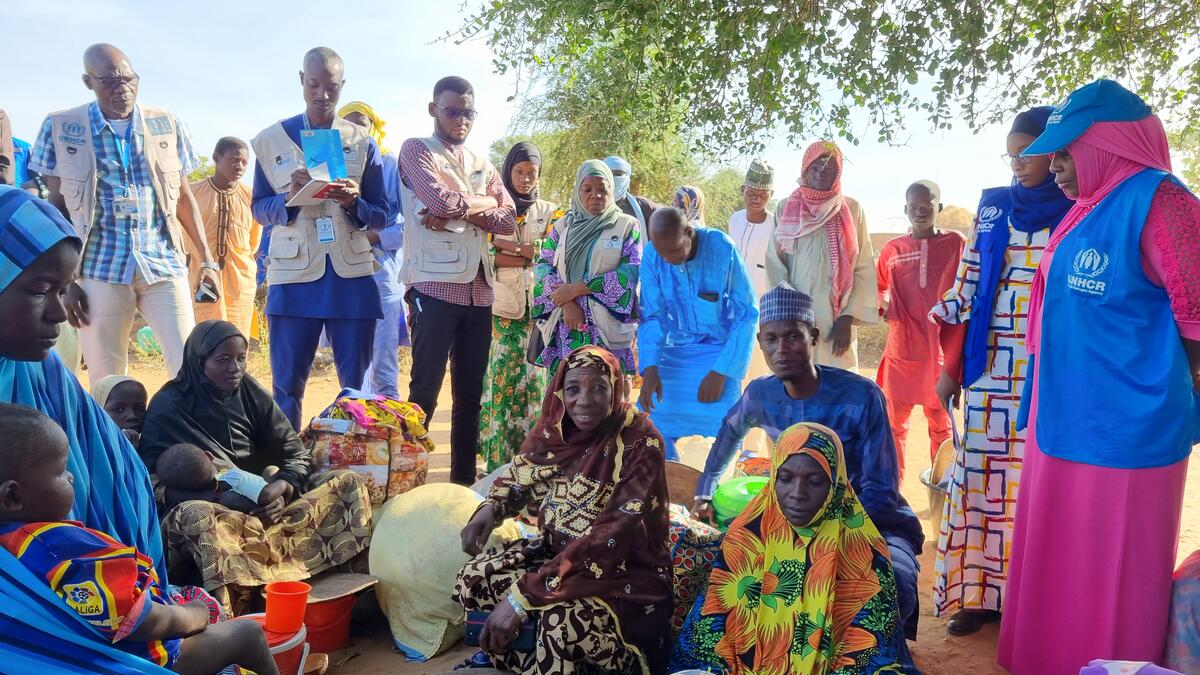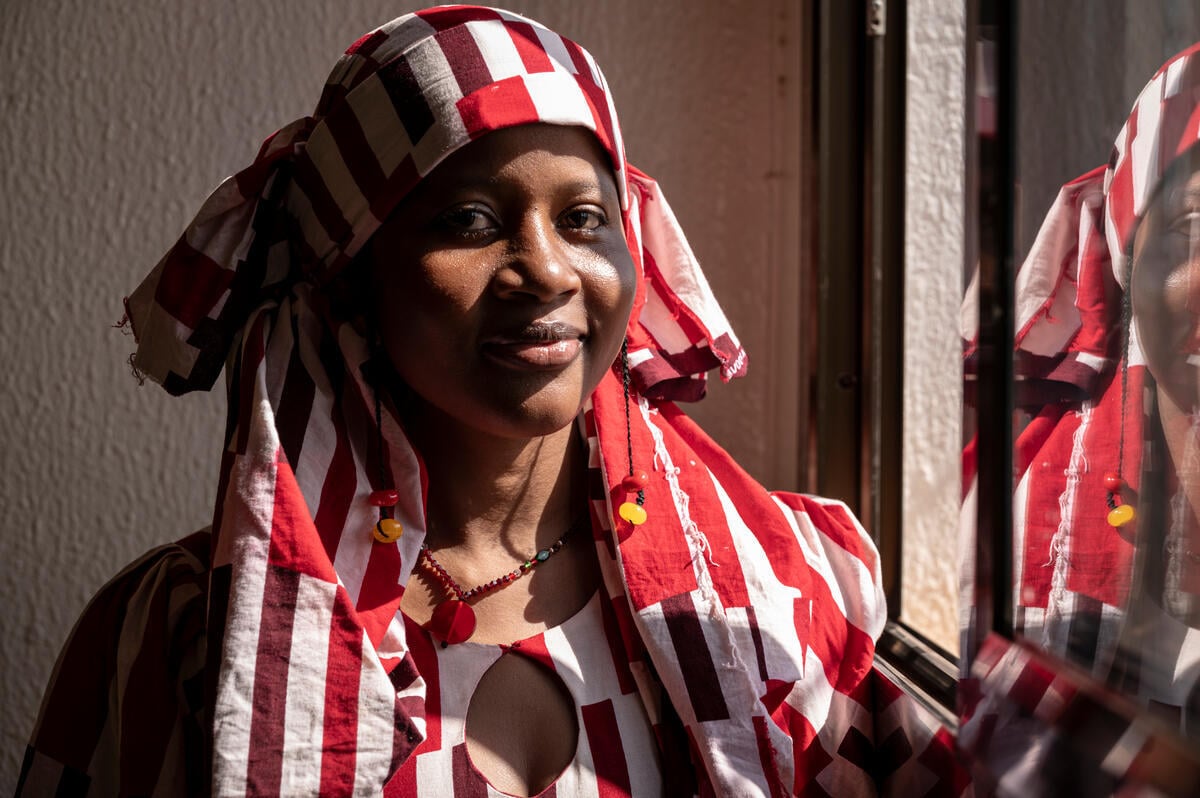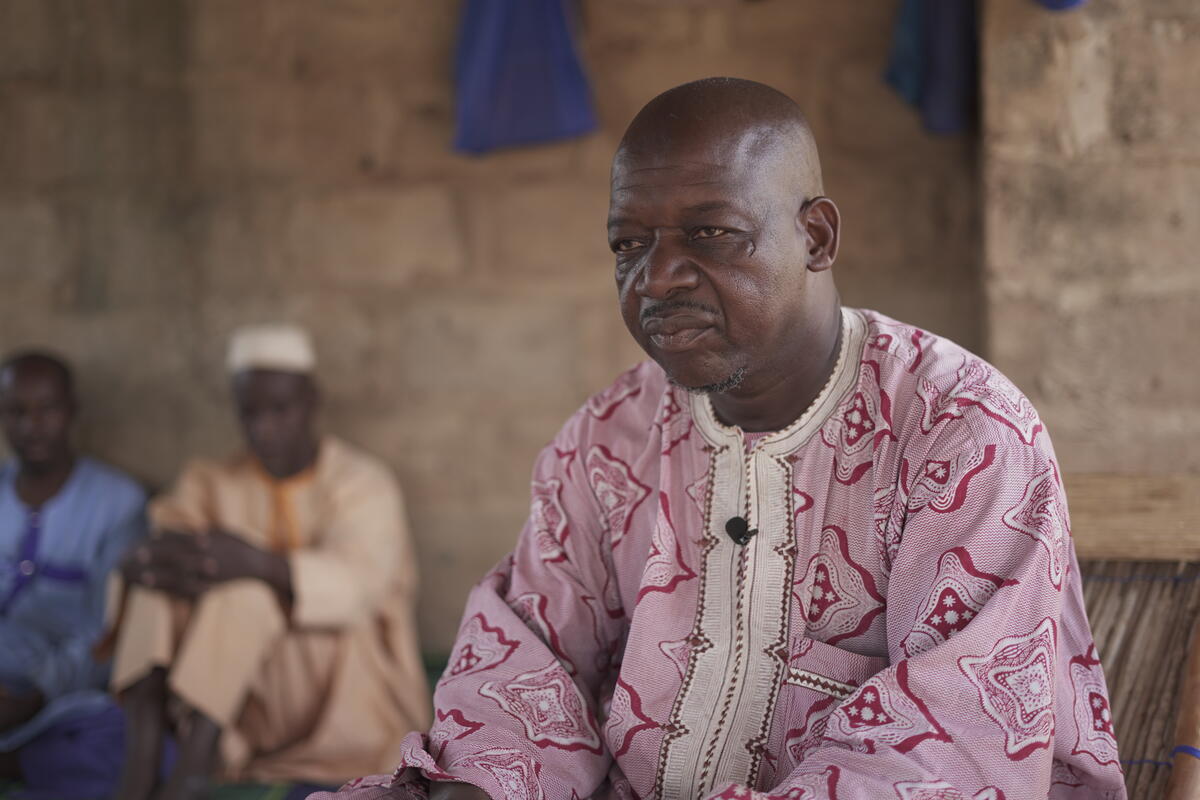Thousands of families uprooted as Lootings and massacres force Burkinabe to flee into neighboring countries
Violence against civilians and intercommunity clashes forced over 50,000 burkinabés to flee their homes to seek refuge in Mali, Niger and further south to the coastal states of Benin, Côte d'Ivoire, Togo and Ghana.Seyata Amadou, a 29 years-old mother of six children, has no news from her husband since the attack on her village Ouro sambo kitabé in Burkina, in mid-November.
“I don't even know where my husband is at the moment because we lost sight of each other in the flight.” says Seyata. “It was about afternoon when the armed men asked the whole village to evacuate before sunset, I had just put rice in my pot, but with the situation we left everything behind,” She adds.
Like in Seyata’s village, the armed groups operating along the Niger-Burkina border stormed Aissa Amadou’s village. “My husband's older brother was kidnapped at dusk at the mosque and then killed” says the 47 years old mother of eight children.
“They threatened us to death, and they took our belongings, burned our identity papers, the children's school supplies and notebooks, our houses were burned, our grain stores looted”
Stories of murder and looting are common among the Burkinabes families who have arrived since mid-November in Niger’s Tillabery locality. The violence comes against the backdrop of terrorist attacks aggravated by the climate crisis.
Many of those fleeing are women and children who often have been exposed to high levels of violence and are traumatized. They have taken refuge in Tera, a town located 180 km northwest of Niamey, the Niger capital. The area is already home to more than 5,000 Burkinabe refugees. According to local residents, the numbers may continue to increase as the remaining population in Burkinabe villages is moving to Téra.
Amadou Mamoudou is 43, is father of 12 children from two wives. He lived in Kitabe village located on the Niger-Burkina Faso border. “The gunmen attacked us, and they grabbed my older brother and slit his throat in front of his children,” he says.
Amadou decided to leave his village for the town of Téra Niger. “Once in Tera I made a phone call to have my brother’s family and mine join me.”
To respond to the new displacement, UNHCR is working closely with local authorities and partners to provide shelter and life-saving assistance to the most vulnerable, such as children and survivors of gender-based violence. However, more resources are needed to prevent internally displaced Burkinabés from becoming refugees and to find durable solutions for them. Newly-arrived Burkinabé refugees – mostly women and children – currently have limited access to food, shelter, hygiene and sanitation.
Despite their limited resources, host communities, have continued to show resilience and solidarity in welcoming the uprooted families.
“We call upon the local, regional and national authorities to really help these populations who are in a vulnerable situation,” says Ramatou Daogo, Deputy Mayor of Téra.
Since 2021, humanitarian access has been difficult due to the security situation. Recently, however, UNHCR has been able to resume food distributions and provide assistance and protection to Burkinabes refugees.
“I am quite concerned about the deterioration of the security in areas inside Burkina Faso bordering Niger,” says Emmanuel Gignac, UNHCR Representative in Niger. "Support from the international community is needed to ensure humanitarian help is timely delivered and to help Niger absorb and increased number of people choosing Niger to seek safety and protection,” he adds.
Niger now hosts more than 21,000 Burkinabe refugees, with most of them living in Tillaberi region. The country hosts over 630,000 refugees and internally displaced people.










